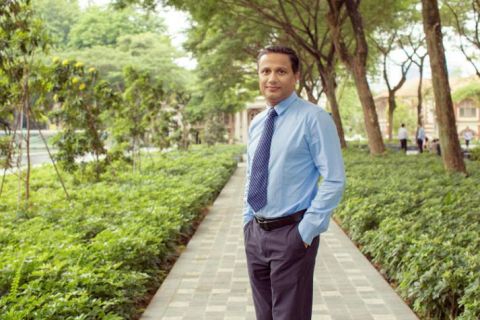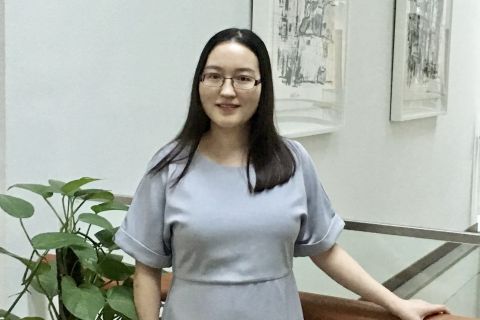
By Juliana Chan
SMU Office of Research & Tech Transfer – At the movies, scientific discoveries are often portrayed as a Eureka moment in the laboratory. Reality, however, couldn’t be more different – early-stage academic inventions often require long cycles of testing, validation and regulatory approvals before they can be turned into something useful, such as a new vaccine.
In a new study published in Research Policy, Associate Professor Reddi Kotha from the Lee Kong Chian School of Business at Singapore Management University and colleagues Phil Kim, Sebastian Fourne, and Kristof Coussement investigated how one type of early-stage opportunity – university-based academic inventions – are selected to receive support from their technology transfer offices (TTOs).
“If you want to study uncertainty, there is no better place to study it than very, very early stage scientific inventions. You have to imagine its potential to many different industries, and you also have to imagine all the development that is required to turn it into products and services. There is very little information to make the decision, making it quite a ‘leap of faith’,” Professor Kotha said.
Using a quantitative, top-down, textual analytical technique, the researchers studied nearly 700 invention evaluation reports from the oldest university TTO in the world, over a seven-year period from 1998 to 2005. These are three- to four-page reports on the commercial potential of the invention, written by a member of the TTO with domain knowledge.
“There are two dimensions that our evaluators think about – feasibility and desirability. Feasibility is whether the outcome can be achieved, and desirability is how useful the invention is, whether it can change people’s lives,” Professor Kotha said.
In terms of feasibility, their study showed that text that indicated doubt and lack of maturity was associated with a 10% decline and 15% decline in budgetary support, respectively. In terms of desirability, background familiarity and scientific complexity was associated with a 13% and 10% improvement in budgetary support, respectively.
According to Professor Kotha, the work has broader implications to management situations in which early-stage opportunities are evaluated for resource commitments. These could include proposals written by business unit directors, venture capital investors, individuals seeking crowdfunding, non-profit organisations and even Hollywood film studios. Considering that the majority of bets seldom yield positive returns, seeking out the most promising proposals could make a significant difference to an organisation’s success.
“Conventional thinking is that we have to take a bet on the individual for early ideas. But we also need to develop some expertise in thinking about how to evaluate novel ideas beyond relying heavily on the signal of past reputation,” Professor Kotha said. “Valuable ideas can come from anybody, and young scientists and young entrepreneurs may have truly transformative inventions and ideas, respectively. We in management theory would like to develop models and tools to access, evaluate and carry forward good ideas, from whoever they may come from.”
This recent study is part of series of studies published in the Academy of Management Journal (2013), Harvard Business Review (November 2014) and Research Policy (2018), where Professor Kotha and collaborators studied how science is turned into products and services.
For more information, please contact:
Goh Lijie (Ms)
Office of Research & Tech Transfer
DID: 6828 9698
Email: ljgoh [at] smu.edu.sg
Back to Research@SMU May 2019 Issue
See More News
Want to see more of SMU Research?
Sign up for Research@SMU e-newslettter to know more about our research and research-related events!
If you would like to remove yourself from all our mailing list, please visit https://eservices.smu.edu.sg/internet/DNC/Default.aspx

